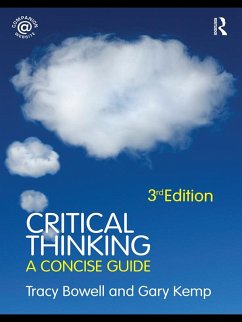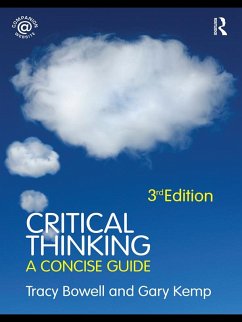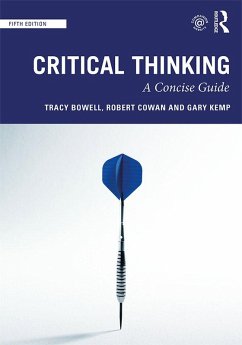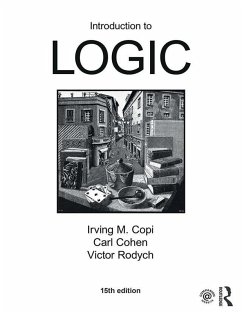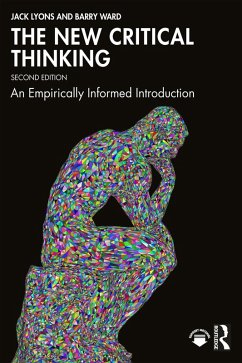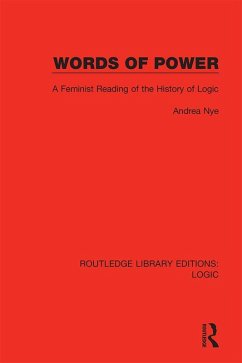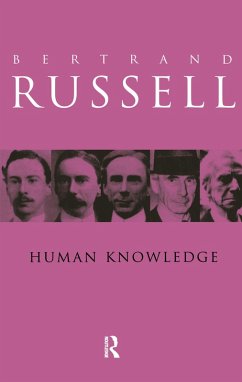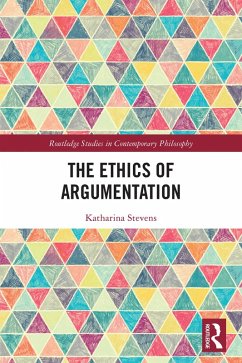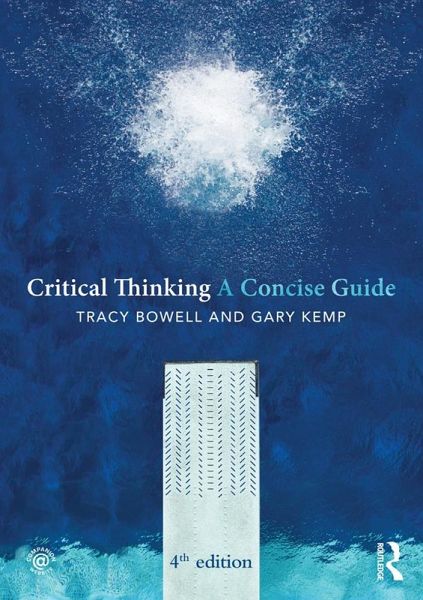
Critical Thinking (eBook, PDF)
A Concise Guide
Versandkostenfrei!
Sofort per Download lieferbar
29,95 €
inkl. MwSt.
Weitere Ausgaben:

PAYBACK Punkte
15 °P sammeln!
We are frequently confronted with arguments. Arguments are attempts to persuade us - to influence our beliefs and actions - by giving us reasons to believe this or that. Critical Thinking: A Concise Guide will equip students with the concepts and techniques used in the identification, analysis and assessment of arguments. Through precise and accessible discussion, this book provides the tools to become a successful critical thinker, one who can act and believe in accordance with good reasons, and who can articulate and make explicit those reasons.Key topics discussed include: core concepts in...
We are frequently confronted with arguments. Arguments are attempts to persuade us - to influence our beliefs and actions - by giving us reasons to believe this or that. Critical Thinking: A Concise Guide will equip students with the concepts and techniques used in the identification, analysis and assessment of arguments. Through precise and accessible discussion, this book provides the tools to become a successful critical thinker, one who can act and believe in accordance with good reasons, and who can articulate and make explicit those reasons.
Key topics discussed include:
This fourth edition has been revised and updated throughout, with a new introduction for each chapter and up-to-date topical examples. Particular revisions include: practical reasoning; understanding quantitative data, statistics, and the rhetoric used about them; scientific reasoning; the connection to formal logic and the logic of probability; conditionals; ambiguity; vagueness; slippery slope arguments; and arguments by analogy.
The dynamic Routledge Critical Thinking companion website provides thoroughly updated resources for both instructors and students including new examples and case studies, flashcards, sample questions, practice questions and answers, student activities and a testbank of questions for use in the classroom.
Key topics discussed include:
- core concepts in argumentation
- how language can serve to obscure or conceal the real content of arguments; how to distinguish argumentation from rhetoric
- how to avoid common confusions surrounding words such as 'truth', 'knowledge' and 'opinion'
- how to identify and evaluate the most common types of argument
- how to distinguish good reasoning from bad in terms of deductive validly and induction.
This fourth edition has been revised and updated throughout, with a new introduction for each chapter and up-to-date topical examples. Particular revisions include: practical reasoning; understanding quantitative data, statistics, and the rhetoric used about them; scientific reasoning; the connection to formal logic and the logic of probability; conditionals; ambiguity; vagueness; slippery slope arguments; and arguments by analogy.
The dynamic Routledge Critical Thinking companion website provides thoroughly updated resources for both instructors and students including new examples and case studies, flashcards, sample questions, practice questions and answers, student activities and a testbank of questions for use in the classroom.
Dieser Download kann aus rechtlichen Gründen nur mit Rechnungsadresse in A, B, BG, CY, CZ, D, DK, EW, E, FIN, F, GR, HR, H, IRL, I, LT, L, LR, M, NL, PL, P, R, S, SLO, SK ausgeliefert werden.




